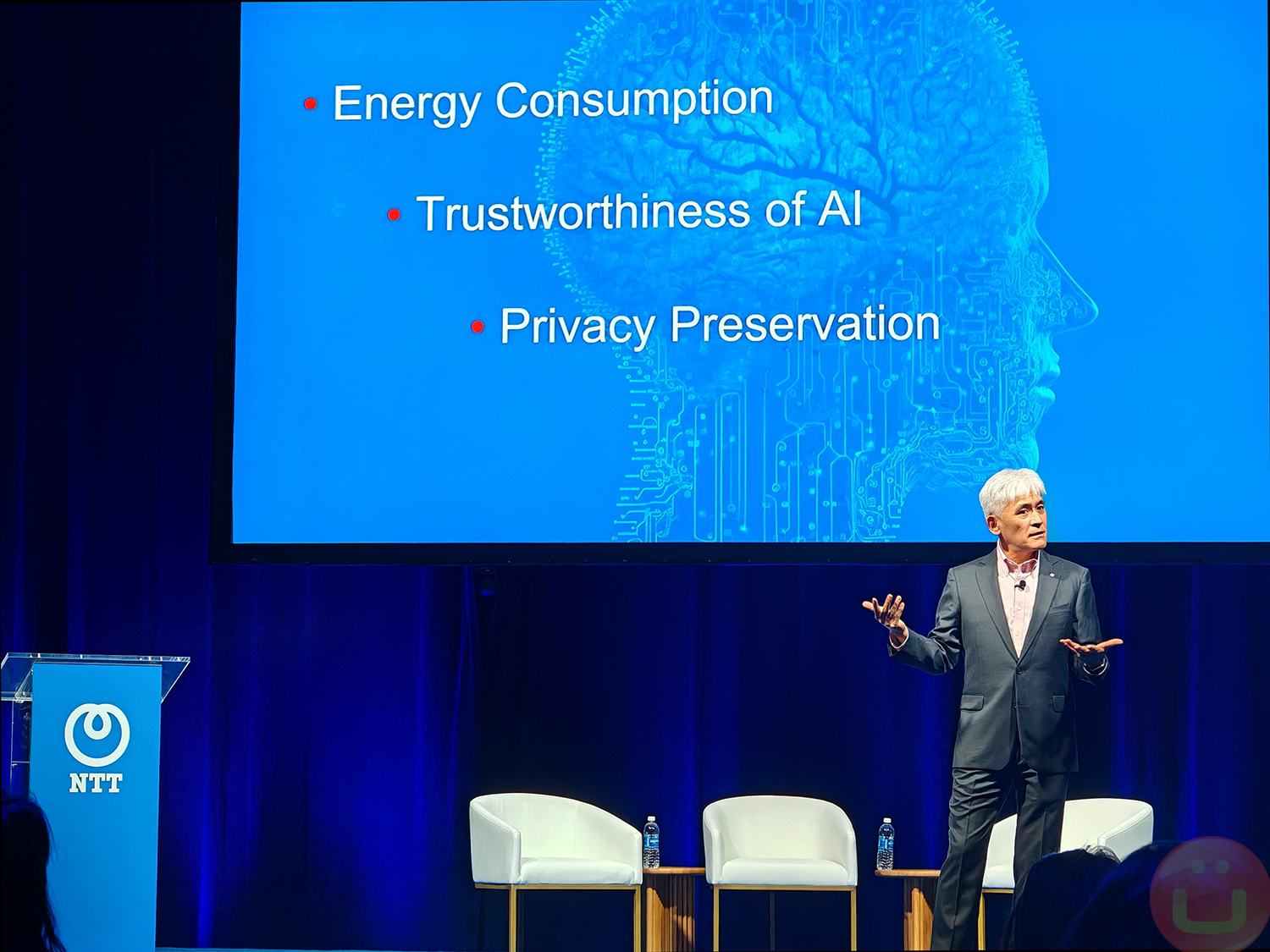
NTT Analysis has introduced the launch of its new Physics of Synthetic Intelligence Group, an impartial initiative spun out from its Physics & Informatics (PHI) Lab. The group was launched as a part of a broader unveiling at NTT’s Improve 2025 innovation summit, reflecting rising international curiosity in constructing safer, extra reliable AI techniques. The initiative goals to know the internal workings of synthetic intelligence, very like classical physics as soon as decoded the conduct of falling apples.
NTT Analysis President and CEO Kazu Gomi, keynote speaker at Improve 2025
“We all know that AI can let you know vital issues… however we don’t know precisely how that occurs. So the notion of Physics of AI for us is: let’s uncover and perceive how AI works.” – stated Kazu Gomi, CEO of NTT Analysis
Gomi acknowledged AI’s super potential to remodel industries and every day life but in addition addressed key considerations that would hinder its progress, significantly vitality consumption, privateness, and trustworthiness. With a staff of over 50 world-class researchers and a mission to “improve actuality,” NTT Analysis is doubling down on daring concepts that will take years to commercialize however promise to reshape the technological panorama in profound methods“. As Gomi famous, “We need to prepare for the long run… and thru science, we are able to make a giant factor out of it.”
Led by NTT Analysis Scientist Dr. Hidenori Tanaka, an skilled in physics, neuroscience, and machine studying, the brand new Physics of Synthetic Intelligence group seeks to demystify the “black field” nature of synthetic intelligence—significantly how AI fashions be taught, course of info, and make choices. The group builds on 5 years of foundational work by the PHI Lab and continues a detailed collaboration with educational establishments, together with Harvard College’s Middle for Mind Science, Princeton College, and Stanford College.
The brand new group’s mission is threefold: to deepen understanding of AI’s inside mechanisms; to create experimentally controllable studying environments for AI, impressed by physics methodologies; and to bridge the belief hole between AI techniques and human customers. The intention is not only technical perception but in addition moral AI integration, achieved by way of transparency somewhat than reactive fine-tuning.
NTT Analysis’s earlier work features a extensively cited neural community pruning algorithm, a bias-removal method for giant language fashions acknowledged by NIST, and new research into how AI kinds conceptual understanding. The group’s analysis might affect future designs of extra pure, environment friendly AI techniques by leveraging similarities between organic intelligence and synthetic neural networks.
As AI’s affect continues to increase throughout sectors, from healthcare to infrastructure, NTT Analysis President and CEO Kazu Gomi emphasised the significance of belief and ethics in AI improvement. “The brand new group goals to demystify considerations and bias round AI options to create a harmonious path ahead for the coexistence of AI and humanity,” he stated.
Dr. Hidenori Tanaka, Scientist, NTT Analysis, PAI Group, NTT Analysis
Filed in . Learn extra about AI (Synthetic Intelligence) and Ntt.





